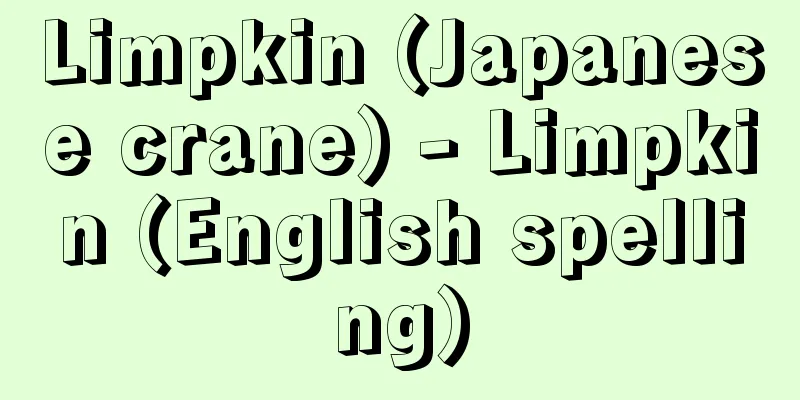Yasuda Yojuro - Yasuda Yojuro

|
Literary critic. Born April 15, 1910 in Nara Prefecture. Graduated from the Department of Aesthetics at Tokyo Imperial University. While at Osaka High School, he published tanka and critiques in coterie magazines that showed the influence of left-wing ideology, but after entering university, he contributed an essay on Japanese classics to Cogito (1932), which he published with his high school friends, declaring, "We love the overlooked classics of this country." He then founded the Japanese Romantic School (1935) with Kamei Katsuichiro and others, which became a hot topic, and his first collection of essays, Japanese Bridges (1936), won the Ikeya Shinzaburo Prize and attracted attention, but he gradually clarified his stance on nationalism and anti-modernism, and wrote works such as One of the Crowned Poets (1938), Emperor Gotoba (1939), A Sense of National Superiority (1941), and The End of Modernity (1941), which had a great influence on young people during World War II. After the war, he returned to his hometown and published the Motherland (1949), and continued to speak out despite harsh criticism, without changing his stance. He returned to the public sphere with Modern Eccentrics (1963), and sparked debate about the evaluation of the Japanese Romantic School. Died on October 4, 1981. [Tsuzuki Hisayoshi] "Selected Works of Yasuda Yojuro, complete set of six volumes (1971-72, Kodansha)" ▽ "An Introduction to the Criticism of the Japanese Romantic School, by Hashikawa Bunzo (1960, Miraisha)" ▽ "A Study of Yasuda Yojuro, by Kamiya Tadataka (1979, Ganshokan)" [Reference] |Source: Shogakukan Encyclopedia Nipponica About Encyclopedia Nipponica Information | Legend |
|
文芸評論家。明治43年4月15日奈良県生まれ。東京帝国大学美学科卒業。大阪高校時代は左翼思想の影響のうかがえる短歌や評論を同人誌に発表したが、大学に入って高校時代の仲間と出した『コギト』(1932)には「私らはこの国の省みられぬ古典を愛する」と宣して日本の古典論を寄稿した。ついで亀井勝一郎(かめいかついちろう)らと『日本浪曼(ろうまん)派』(1935)を創刊して話題になり、最初の評論集『日本の橋』(1936)が池谷(いけたに)信三郎賞を得て注目されたが、しだいに民族主義と反近代主義の立場を明確にし、『戴冠(たいかん)詩人の御一人者』(1938)、『後鳥羽院(ごとばいん)』(1939)、『民族的優越感』(1941)、『近代の終焉(しゅうえん)』(1941)などを著し、第二次世界大戦下の青年に多大な影響を与えた。戦後は郷里に帰り『祖国』(1949)を発刊、厳しい指弾のなかで姿勢を変えずに言論活動を行い、『現代畸人(きじん)伝』(1963)で論壇に復帰し、『日本浪曼派』評価の議論を喚起した。昭和56年10月4日没。 [都築久義] 『『保田与重郎選集』全六巻(1971~72・講談社)』▽『橋川文三著『日本浪曼派批判序説』(1960・未来社)』▽『神谷忠孝著『保田与重郎論』(1979・雁書館)』 [参照項目] |出典 小学館 日本大百科全書(ニッポニカ)日本大百科全書(ニッポニカ)について 情報 | 凡例 |
<<: Yasuzuka [town] - Yasuzuka
>>: Yasuda Yoshisada - Yasuda Yoshisada
Recommend
Kyoto Humanities Garden
...It was later moved to a former naval fuel depo...
Thundering Formation - Kaminari no Jin
Since the Nara period, this refers to the practice...
Dentsuin Temple
Year of death: August 28, 1602 (October 13, 1602) ...
Preconsciousness
A mental process that is not conscious at a certai...
Somapura
...The site of the largest Buddhist monastery in ...
Submerged plants - Chinsuishokubutsu
A type of aquatic plant that lives sessile with it...
Rhodohypoxis - Rhodohypoxis
A bulbous plant of the Amaryllidaceae (APG classi...
Luthuli
A South African nationalist leader and one of the ...
Passenger train - passenger train
〘 noun 〙 Luggage transported by passenger trains. ...
Cuffs - Kafusu (English spelling) cuffs
A general term for the part of a garment that cov...
King Gyeongdeok
The 35th king of Silla, Korea (reigned 742-765). ...
Holt, T.
…The seminary (1483), along with Oxford Cathedral...
Sodium phosphate (Na phosphate) - Sodium phosphate
Chemical formula: Na 3 PO 4 . Also known as trisod...
Gennadios II (English spelling)
...He was the first Patriarch of Constantinople u...
Pelican Nebula - Pelican Nebula
Diffuse nebulae in Cygnus. IC5067, 5068, 5070. The...








![Kudzu [Hot Spring] - Kudzu](/upload/images/67cb687d441c5.webp)
